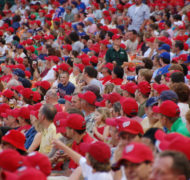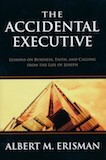How Are We Unknowingly Influenced By Sports?
Blog / Produced by The High Calling
In the movie “The Sandlot,” Scotty Smalls sneaks a Babe Ruth autographed baseball out of his house so that he and his friends can play some back yard ball. When they lose the ball, Smalls informs his friends that it was autographed by some Babe Ruth person, even asking, “Who is she?”
Well, if you know the clip, you know his buddies respond that he is:
“The Sultan of Swat”
“The King of Crash”
“The Colossus of Clout”
“The Colossus of Clout”
“THE GREAT BAMBINO!”
Now, maybe you aren’t as clueless as Smalls and you know who Babe Ruth is. But the humor here plays off the fact that everyone knows who Babe Ruth is.
And it’s becoming apparent that everyone knows that sports and sports figures play a similar, yet even larger role in our current culture. In the same way that you can’t enter a shopping goods store without there being a holiday you just need to buy something for (I’m looking at you Wal-Mart and your Christmas displays going up before Halloween!), we also can’t go a week now without a major sporting event or sports newsmaker impacting us in some way or another.
A few examples from recent sports culture:
Golfer Tiger Woods: famous for golf; infamous for adultery.
Cyclist Lance Armstrong: famous for being cycling’s Babe Ruth and being the backbone to Livestrong; infamous for cheating, lying, and bullying.
Baseball player Ryan Braun, a young perennial MVP candidate who beat the system... once. But was suspended for the 2013 season for using performance enhancing drugs and lying about it.
Football player Richie Incognito, who made the NFL Pro Bowl last season; now enmeshed in an ugly scandal of bigoted harassment of a teammate.
So what? A bunch of millionaires are getting themselves in trouble? How does that affect me?
When I was finishing 11th grade I was fortunate enough to play on a State Championship baseball team. I didn’t start, but I stole a ton of bases and scored a bunch of runs. Either way, I received the same gold medal that our soon-to-be-minor-league-shortstop had hung around his neck that day. We got paraded around the town on top of a fire truck. Seven year olds and seventy year olds not only knew my name, they even told me my stats as I autographed their t-shirts and hats. It’s hands down one of the highlights of my entire life. We put tiny Palmyra, Pennsylvania on the map. And apparently gained Coca Cola’s attention.
When we got back to school that fall, we now had Coca Cola vending machines, a Coca Cola sponsored banner congratulating us hanging in our cafeteria, and congruent advertisements around the school and the ball fields.
And money.
Suddenly our sports fields became nicer. We had a new paint job on our school walls. Our sporting events became more attended.
And this is not an anomaly. Many of our school systems are now, more than ever, sports-and-money-oriented.
Even though there are studies out there proving that elementary aged kids are better suited for school times of 8 a.m. to 2:30 p.m., and secondary school aged youth being better learners with a 9 a.m. to 3:30 p.m. timeslot, those time assignments are swapped. Why? Sure, it keeps costs down for bussing.
But more so, the reason is this: Sports teams can play their games earlier so they can play before it gets dark. And since schools make money from these sporting events, what would you expect?
Now, I’m not complaining about this. But at the same time, when it is a known fact that teenagers don’t fare as well academically in the morning compared to younger children (Trust me, I work with college students) we blatantly sacrifice academic success for sports.
You see, as sports stars make millions, as scholarships are doled out to the athletic bourgeoisie, and schools profit from touchdowns, everyone from individual students to parents to entire school systems are being whirled around the gravitational pull of sports.
It is time for thoughtful Christians to weigh carefully the role that sports play in our lives, our faith, our neighborhoods and our future.
Even if you think Babe Ruth is a girl, it’s time to have a conversation about how sports is deeply influencing our lives.
Philip Schiavoni serves as a campus minister with the Coalition for Christian Outreach at Shippensburg University in partnership with Shippensburg First Church of God. He blogs and shares his poetry at the fire in His eyes and writes about sports at The Story of Sports.





